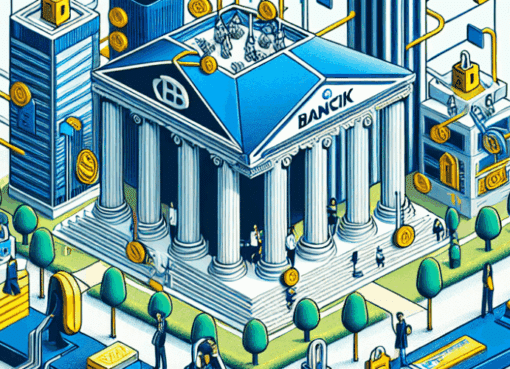In a groundbreaking announcement, global healthcare technology leaders have unveiled a collaborative effort to integrate blockchain technology into medical supply chains, aiming to enhance security, transparency, and efficiency amid growing concerns over counterfeit drugs and supply shortages. This initiative marks a significant step forward in the healthcare sector’s adoption of blockchain, potentially reshaping how medical supplies are tracked and managed worldwide.
The coalition, named MedChain Alliance, includes prominent healthcare organizations, technology giants, and blockchain specialists. They are piloting a project that will employ blockchain’s decentralized ledger system to record every transaction related to essential medical supplies, from manufacture to delivery at hospitals and pharmacies.
Addressing a Critical Need
The World Health Organization (WHO) has reported that counterfeit medicine is a growing threat, particularly in developing countries where as much as 30% of drugs sold are fake. Moreover, the COVID-19 pandemic exposed severe vulnerabilities in the global medical supply chain, with many countries facing critical shortages of medical supplies such as masks, gloves, and even essential drugs.
MedChain Alliance’s blockchain solution aims to tackle these challenges head-on. By maintaining a transparent and immutable record of medical supply transactions, blockchain technology not only helps in combating counterfeit drugs but also ensures a more equitable distribution of medical supplies.
How Blockchain Enhances Supply Chain Security
Blockchain technology offers unique benefits for supply chain management, particularly in scenarios requiring high levels of security and accountability like those in the medical field. Each block in the blockchain contains a timestamp and transaction data, linked to the previous block, creating a continuously growing chain that is nearly impossible to alter fraudulently.
This transparency means that every transaction can be audited and verified by authorized stakeholders in the supply chain. If a counterfeit drug enters the supply chain, it can be quickly identified and traced back to its source, significantly reducing the risk to patient safety and increasing accountability among suppliers.
Pilot Programs and Future Plans
The initial phase of the MedChain Alliance initiative has already been rolled out in select regions, including parts of Africa and South Asia, where the risk of counterfeit drugs is particularly high. Early reports suggest that the implementation has led to improvements in tracking inventory levels and has helped reduce instances of stock-out situations in hospitals and clinics.
The success of the pilot programs could lead to a broader rollout and potentially set a new standard for handling medical supplies globally. Additionally, the Alliance plans to integrate AI and machine learning technologies to further enhance the predictive capabilities of the system, allowing for better forecasting of supply needs and potentially averting future crises.
Global Impact and Industry Responses
The healthcare industry’s response to the MedChain Alliance initiative has been overwhelmingly positive. Many see this as a crucial innovation in the fight against the global counterfeit drug market, which not only jeopardizes patient health but also causes significant financial losses to legitimate manufacturers and suppliers.
Furthermore, governments and regulatory bodies around the world have expressed interest in supporting this initiative. Enhanced supply chain security can significantly aid in regulatory compliance and enforcement, making it easier to uphold high standards in healthcare practices.
Looking Forward
As blockchain technology continues to prove its value in various sectors, its integration into critical areas such as healthcare supply chains could not come at a more opportune time. With its ability to provide secure, transparent, and efficient solutions, blockchain stands out as a key technology that could help overcome some of the most pressing challenges facing the global healthcare system today.
This initiative by the MedChain Alliance not only highlights the potential of blockchain technology in revolutionizing industries but also serves as a call to action for other sectors to explore and adopt blockchain solutions for their own critical challenges. The future of global healthcare logistics may well depend on the widespread adoption of such innovative technologies, setting the stage for a more secure and reliable supply chain ecosystem.




